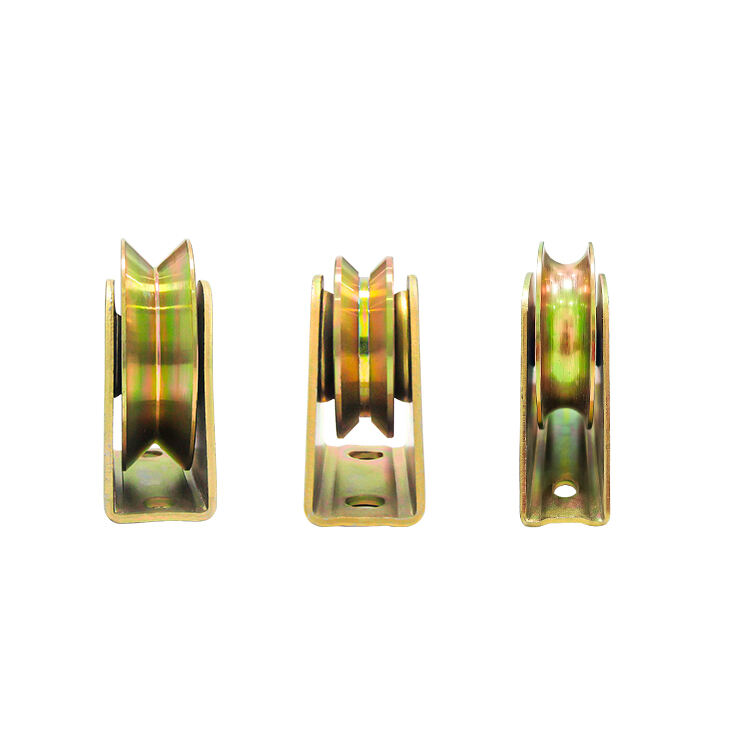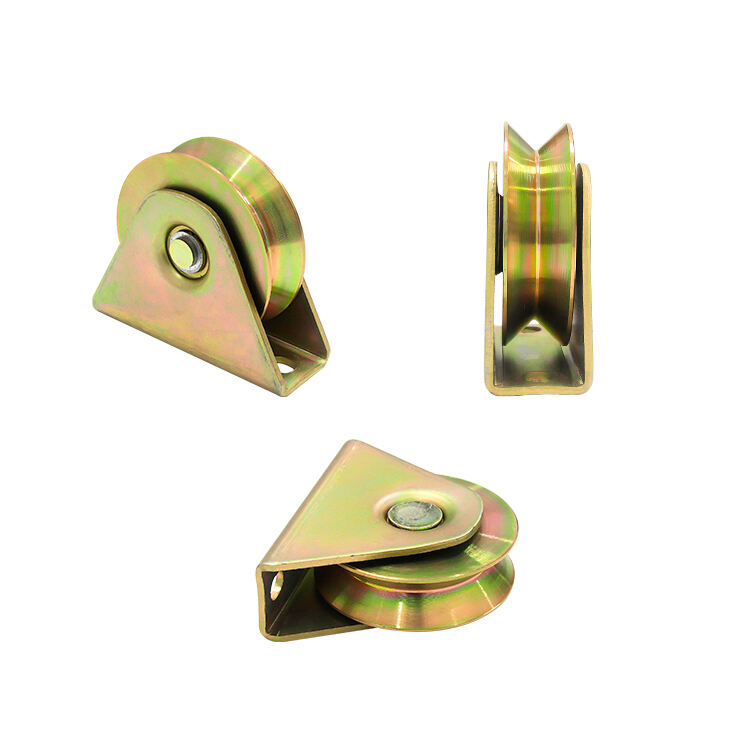Types of Business Rollers for Specific Applications
Gravity Rollers vs. Powered Conveyor Systems
In logistics operations, gravity rollers and powered conveyors play different but important roles. Gravity rollers work by letting items roll along under their own weight, making them pretty straightforward and budget friendly options for places dealing with light stuff that doesn't need much handling. These systems save energy and don't break down much either, so they're great value propositions for smaller companies or mid sized operations. Powered conveyor belts tell a different story though. They have motors that actually push products along, which makes all the difference when there's constant loading and unloading happening throughout the day. We see these types of systems doing well in warehouses or manufacturing plants where things get really busy and weights can be substantial. The upfront price tag is definitely higher compared to gravity systems, but many businesses find the investment pays off over time in productivity gains.
Warehouse managers dealing with high volume operations are increasingly turning to powered conveyor systems these days. Industry reports indicate that adoption rates have jumped quite a bit since around 2013. When looking at modern logistics centers, things get complicated fast with all the different products moving through at once. That complexity naturally drives up the need for better automation options. What we're seeing now is companies pushing toward smarter, greener conveyor tech despite the upfront costs. Most operators know that while installing these systems requires some serious capital, they typically pay off within three to five years through reduced labor expenses and fewer product damages during handling.
Sliding Gate Rollers for Security and Automation
Sliding gate rollers really matter when it comes to boosting security and making access control systems work better. They basically hold up and move gates along tracks whether someone lives in a house or runs a business. The good ones last forever because they're built tough enough for all sorts of weather conditions. Most quality models can handle pretty heavy loads too, so gates don't jam or get stuck after months of daily use. When paired with proper motor systems, these rollers make automated gates operate much more smoothly. Homeowners notice this difference immediately since their gates open and close without hesitation. Businesses benefit as well since customers appreciate reliable entry points without delays during busy hours. Overall, investing in solid sliding gate rollers pays off in terms of both convenience and long term security.
More people are installing automated sliding gates these days as part of their security setup. The main reasons? Convenience and better protection against break-ins. These automated systems cut down on the need for manual operation, so there's less chance someone might forget to lock up properly or make a mistake when closing the gate. That's probably why we're seeing them pop up everywhere from factory complexes to suburban neighborhoods lately. Some homeowners even tell us they feel safer knowing the gate closes automatically at night without anyone having to remember to do it manually.
Heavy-Duty Rollers for Industrial Demands
Industrial environments need heavy duty rollers for things like manufacturing plants and warehouses because they just cant handle anything else when it comes to durability and load capacity. Most of these rollers come from steel or similar tough materials since they have to take on big weights day after day without breaking down. The automotive sector definitely depends on them, along with logistics companies and anyone working with heavy machinery. Think about materials handling operations where massive objects keep moving across conveyor belts all day long. Without those sturdy rollers holding everything together, whole production lines would grind to a halt during peak hours when demand spikes unexpectedly.
Picking out the correct heavy duty roller means looking at what exactly the job requires, things like how much weight it needs to handle and what kind of environment it will work in. When companies select rollers specifically designed for their particular application, they tend to see better performance from their systems, less time spent fixing breakdowns, and longer lasting machinery overall. Getting this right matters a lot for industries where operations run non stop, because good roller choices directly impact whether production lines keep moving forward or come grinding to a halt. The difference between smart selections and generic ones can mean thousands saved on repairs and replacements down the road.
Material Selection for Durability and Performance
Steel Rollers: Strength for Heavy Loads
Steel rollers stand out because they're super strong and can handle really heavy stuff. Made to take on serious pressure, these rollers don't bend or wear down easily, which is why factories love using them for things like steel beams and parts in cars. Take a look at how they perform under weight – most steel rollers keep their shape even when loaded down, so they become essential equipment in many manufacturing setups. Maintenance matters too. When kept in good condition, steel rollers last for years, sometimes way longer than expected. This makes them a smart investment for companies needing durable solutions that won't break down after just a few months of tough usage.
Nylon and Polyurethane: Lightweight and Corrosion-Resistant
People often go for nylon and polyurethane rollers because they're light and stand up really well against rust and chemicals. These characteristics make them great choices for places where there's lots of moisture or chemicals around, like many factories and industrial settings. The fact that they're so light means workers can handle them without much hassle, cutting down on the physical strain and power needed when installing equipment on site. We've seen these materials work wonders in wet environments too, think about food processing facilities or research labs dealing with various chemicals, where keeping metal parts from corroding is absolutely critical. Choosing these materials actually saves money over time while making operations run smoother in those tricky conditions.
Hybrid Materials for Specialized Environments
In environments where standard materials just won't cut it, hybrid materials give manufacturers something special to work with. When companies mix different substances together, they end up creating rollers that hold up against some pretty harsh situations. We're talking about places where temperatures swing from blistering hot to freezing cold without warning. The real magic happens when these mixed material rollers perform better than traditional ones in settings needing both toughness and some give. A few studies out there point to cost savings too. Companies switching to these hybrids often see maintenance bills drop significantly over time. That means less downtime and fewer replacement parts needed. For industrial operations facing all sorts of unpredictable conditions, these combinations have become essential tools for keeping things running smoothly day after day.
Load Capacity and Operational Requirements
Calculating Weight Limits for Safe Operations
Knowing what weight limits rolling systems can handle is essential if we want to keep operations running safely. When figuring out these limits, designers look at several factors including how the system was built, the materials used, and how much resistance there is between moving parts. Most industry standards recommend adding about 50% extra capacity beyond normal requirements just in case something goes wrong. Going over these limits doesn't just break equipment faster it creates serious safety problems too. Take sliding gates for example. If someone tries to force a standard motor or wheel past its rated capacity, those components will wear out much quicker than expected. Worse still, workers might find themselves in dangerous situations when overloaded systems fail unexpectedly during operation.
Matching Roller Strength to Industry Demands
Industries vary widely when it comes to what they need from roller strength, so finding the right match matters a lot for operations. Take those places with automatic sliding gates for instance. These facilities really depend on tough rollers since gates get opened and closed hundreds of times daily without fail. When figuring out what kind of rollers work best, most companies look at actual usage stats rather than just specs on paper. They want something that performs well day after day while lasting through all that wear and tear. Using cheap rollers meant for light duty instead of industrial grade ones? That's asking for trouble. We've seen warehouses shut down completely because of failed rollers during peak hours. Maintenance bills go through the roof too. After dealing with these headaches ourselves, we learned the hard way that spending extra upfront on quality rollers pays off big time in the long run.
Avoiding Downtime with Proper Load Distribution
Getting the weight distributed properly across machinery really matters if we want to prevent breakdowns and those frustrating periods when operations come to a halt. What works well in practice is spreading out the load so no one part gets overloaded while others sit idle. Some industries have found success using things like heavy duty sliding door wheels which help spread the strain more effectively throughout the system. Looking at what various manufacturers have done shows pretty clearly that when companies start paying attention to how they manage loads, their machines tend to last longer and break down less often. One factory reported cutting downtime by around 30% after rethinking their approach to weight distribution, which means more time actually producing goods instead of waiting for repairs.
Environmental and Safety Considerations
Corrosion Resistance in Harsh Climates
When picking materials for places with tough weather conditions, corrosion resistance should definitely be at the top of the list. We just cant ignore how important these materials are, particularly in areas where rain, salt air, or extreme temperatures will wear down equipment fast. Putting the right protective layers on surfaces and choosing suitable materials makes a big difference in fighting off corrosion damage. Galvanizing metal parts works wonders, and switching to stainless steel or composite options gives equipment much better protection over time. Most manufacturers know this already. Standards set by groups like ASTM and ISO give us measurable benchmarks for what counts as good corrosion resistance. These standards help ensure our products won't fall apart after just a few years outside, even though nobody likes dealing with maintenance costs no matter how well built something seems initially.
Noise Reduction for Workplace Safety
The noise in factories really affects workplace safety and often gets companies into trouble with health regulations. When decibels get too high, workers struggle to hear warnings, and productivity drops off pretty fast too. That's why manufacturers now use special rollers made to cut down on all that racket. Take composite rollers for example these things make way less noise than regular steel ones we've seen on shop floors for decades. Some studies point out that when factories lower noise levels, workers actually get about 10% more done throughout the day. So it makes good business sense to spend money on those noise reduction technologies like these specialized rollers. Not just because it keeps OSHA happy, but because quieter workplaces mean better performance across the board.
Emergency Stop Features and Safety Compliance
Putting emergency stop buttons into automated systems isn't just good practice it's basically required for keeping workers safe and meeting those pesky industry rules. Take automated roller systems for instance when something goes wrong, these stops let operators shut things down fast before anyone gets hurt. Most factories have to follow OSHA guidelines and ISO standards anyway, so including emergency stops makes sense from both a legal standpoint and common sense perspective. Beyond just checking boxes on paperwork, these safety features actually make a difference in how quickly problems can be addressed during emergencies. While no one wants accidents happening, the reality is that having proper emergency stops significantly cuts down on injuries while still keeping production lines running within acceptable parameters set by regulators.




